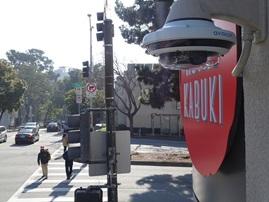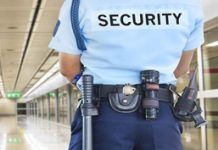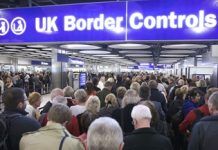The wildly controversial SFPD live monitoring of private security cameras is now official San Francisco city policy, as the Board of Supervisors voted 7-4 to allow SFPD to monitor those security cameras all over town in real time.
The proposed expansion of SFPD access to surveillance cameras all over town has been such a thorny proposal that Supervisor Aaron Peskin’s compromise measure for whether and how SFPD can access that footage has been stuck in a subcommittee for most of the summer. It’s been delayed and booted to the next week’s committee meeting nearly every week since July. And when this SFPD camera surveillance measure finally made its way to the full Board of Supervisors on Tuesday, the matter was delayed again by two-and-a-half hours, presumably because Peskin and Supervisor Hillary Ronen were still working on amendments to the thing.
But SFPD got their live monitoring access to those cameras, as the Board of Supervisors approved the measure last night in a 7-4 vote, per the Chronicle. The measure allows SFPD live access to privately owned security cameras without a warrant, for up to 24 hours, in the circumstances the Chronicle describes as “to respond to a life-threatening emergency, to decide how to deploy officers during a large event with public safety concerns, and to conduct a criminal investigation if allowed for in writing by a captain or higher-ranking SFPD official.”
Supervisors Connie Chan, Dean Preston, Hillary Ronen, and Shamann Walton were the only votes against the measure.
This measure was Peskin’s baby, and a compromise meant to avoid having two dueling ballot measures on the matter. He described it Tuesday as a way “to allow law enforcement to, with rules, utilize certain technologies to make San Francisco safer.”
His amendments include “a 15-month sunset,” so the board can revisit this thing and even discontinue it a little over a year from now. He added that the live surveillance must be “voluntarily agreed to by third parties,” which would be individual SF residents with a Ring or Nest doorbell, shopkeepers, or in most cases, the Community Benefit Districts (CBDs) that operate the majority of the private security cameras monitoring the city.
And giving cops access to the cameras without a warrant was widely supported on the board. “The public is demanding that we take a more proactive approach to public safety,” said Supervisor Catherine Stefani. ”It’s not a fantasy that we are short police officers. It’s not ‘copaganda,’ and all of what’s been said. It’s numbers.”








